Dibarah Mahboob’s ‘Kraati’: Where women tell the story for a change
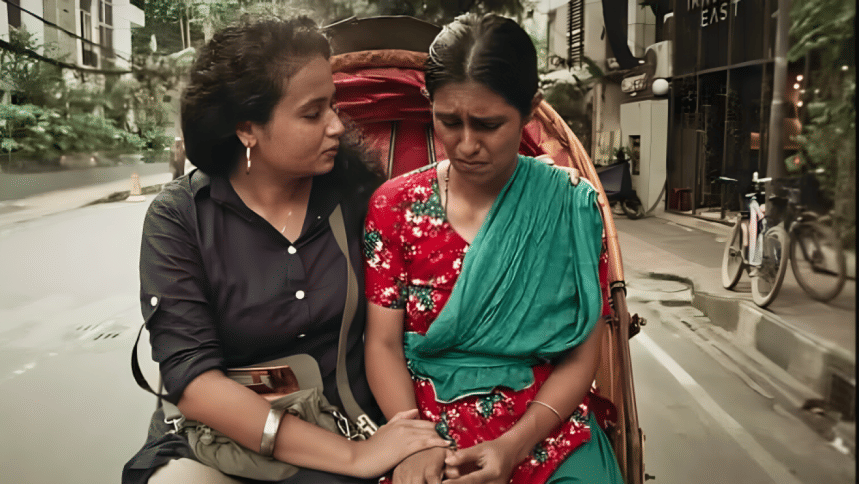
In the usual run-of-the-mill Bangladeshi cinema, where narratives often orbit around male protagonists and their odysseys, Dibarah Mahboob's "Kraati" emerges as a pleasant anomaly—a short film centred around two young women, an upper-middle-class daughter and her resilient househelp. Set against the backdrop of the July Monsoon Revolution of 2024, "Kraati" delves into their intertwined lives and shared struggles for autonomy and respect, in a society run very much within the patriarchal framework. Drawing from her anthropological background and personal experiences, Mahboob crafts a narrative that is both intimate and universally resonant. While "Kraati" does not explicitly reference the movement, its spirit pulses through the film's core. With an air of revolution already in the atmosphere, the resonance with the film's themes was not planned but organically folded in during its shoot. You feel it in the subtext: the desire for autonomy, the hunger for respect, and the need to push against invisible walls.
Now set for online screening from May 23 to June 1 as part of Asian American and Pacific Islander Heritage Month's Satellite Programme, "Kraati" invites audiences around the world into a narrative rarely depicted in Bangladeshi media—one where female friendship transcends class and where resistance is a gentle unfolding rather than a march with banners. On May 31, it will also be screened in San Francisco, a rare moment when a Bangladeshi feminist arthouse film enters the global room.
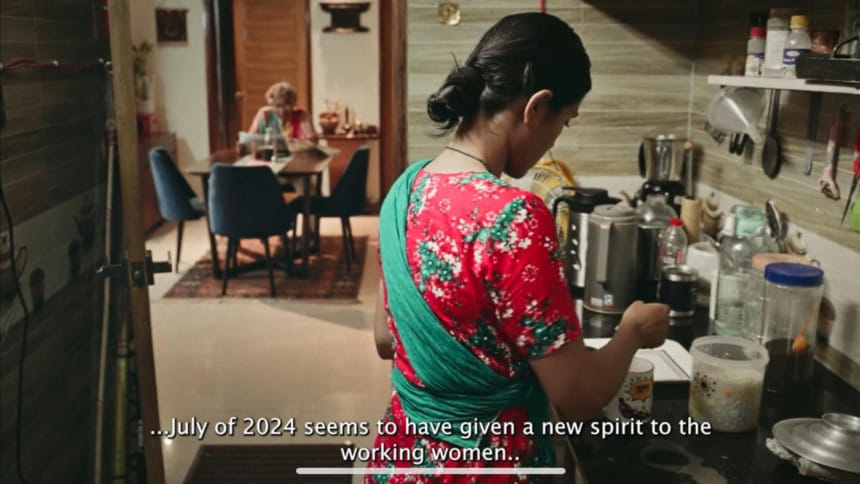
This approach to the film was aligned with Mahboob's intent to emulate the organic storytelling reminiscent of Satyajit Ray, focusing on the natural unfolding of events without forced dramatisation. Dibarah Mahboob shared how "Kraati" was shaped by her childhood friendships with house helps, who were more like playmates and protectors. It's a bond that is rarely represented, and even more rarely respected, in South Asian cinema. In essence, this is a political film — there is no dramatic betrayal, no heroic sacrifice — and that's the point. The story told over 15 carefully constructed minutes could easily be missed by those trained to look for drama in loud crescendos and overt dialogues. But Mahboob is less interested in what is said and more in what remains unsaid.
As for the challenges, they were endless. Dibarah Mahboob was acutely aware of the cinematic ecosystem she's entering—male-dominated, male-financed, and overwhelmingly filtered through the male gaze. "The audience in the country isn't ready for the female gaze," she regrets. In many ways, the production itself also became an act of resistance. The grant that birthed the project, themed around "countering patriarchal backlash", was ironically pulled mid-way due to what can only be described as patriarchal backlash. Mahboob recounts a familiar landscape: being taken less seriously as a female director, watching male peers receive more validation, and having to pay out of pocket to extend her film beyond the limited minutes the grant allowed.
Applebox provided limited mentorship and feedback during this process, but this wasn't a seamless collaboration. One can imagine how a film about female intimacy and class tension, directed by a Bangladeshi woman and told with radical quiet, might be misunderstood, misread, or even dismissed. There was a month-long break in production due to the unrest. Electricity was erratic. At one point, Mahboob herself had to act in a small role because the original actor dropped out. And yet, despite it all, "Kraati" made it.
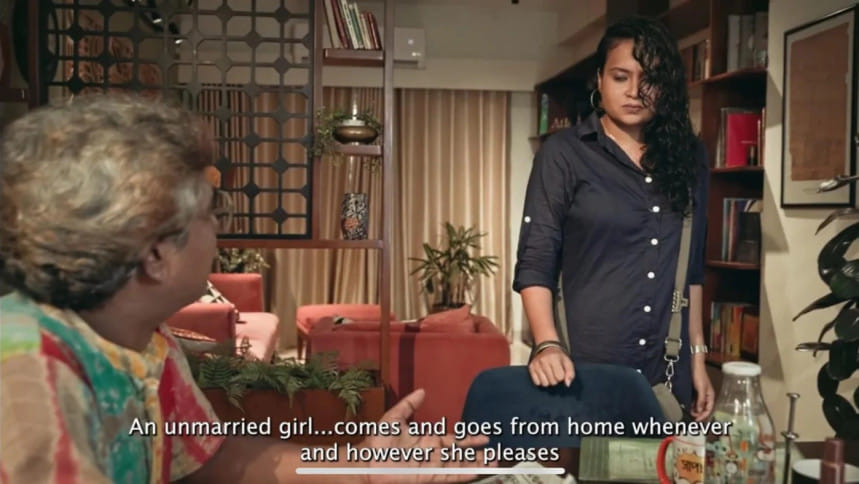
One of the lead actresses, Tasneem Islam Arna, spoke of the set as a safe space, rare and essential in a country where women are more often told to perform than to explore. Palama Ahmed, who played the house help, had no previous point of identification with the character. But through direction, conversation, and time, she stepped into a role that demanded vulnerability and quiet strength, which is a rarity in Bangladeshi cinema's traditional female roles.
"Kraati's" reception on the international stage has been noteworthy. It secured nominations at esteemed festivals such as the Anatolia International Film Festival and the Cine Paris International Film Festival, with accolades including Best Short Film and Best First-Time Director. Notably, the film bagged the Best First-Time Filmmaker Award at the Barcelona Film Experience. But for Mahboob, what matters is what it enables, along with the recognition: future funding, learning labs, a chance to create more films on her terms. She envisions a future led by a female production house, one that nurtures stories told from the female gaze. One that does not objectify but bears witness. This gaze, she says, has been a historically denied space in Bangladeshi cinema, which continues to revolve around male fantasies, with censorship boards permitting violence and vulgarity while rejecting introspection or nuance.
As "Kraati" becomes available for online viewing, it's worth pausing to consider what kind of cinema we want to champion. This is not the kind of film that goes viral. It is not a spectacle. It is, in its quiet insistence, something more powerful: a cinematic act of care. In "Kraati", the camera never leers and moralises. The female friendships here are not catty, cruel, or pitted against each other like in exhaustive soap tropes. They are intersectional and they hold space.
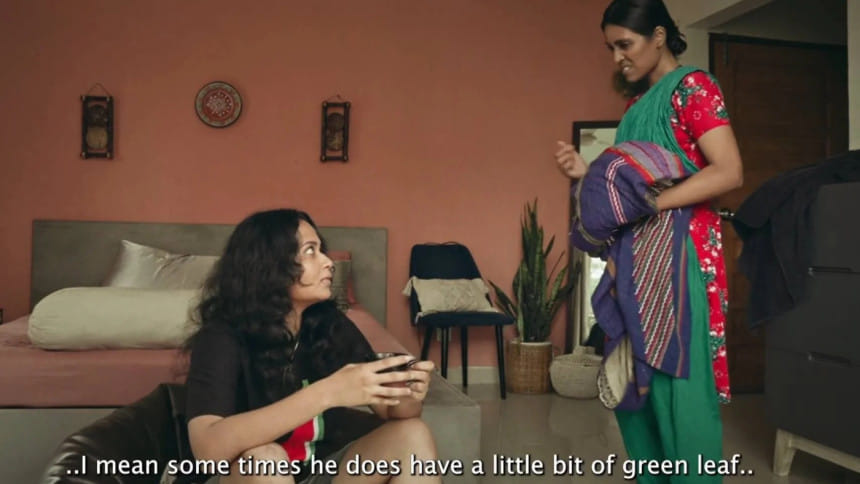
There's a word Mahboob uses when discussing her influences—compassion. It's something that's gone missing from much of contemporary film. "Most of our movies in Bangladesh are built around the male gaze," she reflects, "even when the story is about women." This becomes not just a philosophical concern but a technical one. It shapes what gets funded, what gets seen, and who gets heard.
In "Kraati", she attempts a reversal. Not wanting to dictate what her audience should feel, Mahboob has left the story deliberately open-ended, leaving space for dialogue. The female gaze here listens and it resists preaching like a mansplainer. It asks you not to agree, but to look again. She wants viewers, from the far left to the far right, to empathise. In this too-brief, gently lit film, Dibarah Mahboob reminds us of the one thing that may still be able to save us from ourselves: We need to listen. Even when the story isn't ours.

 For all latest news, follow The Daily Star's Google News channel.
For all latest news, follow The Daily Star's Google News channel. 



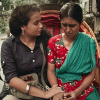

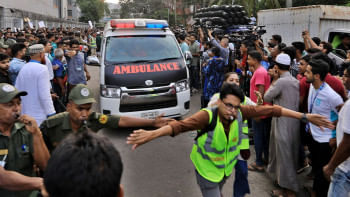
Comments